Keynote Speaker
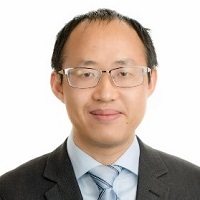 |
Prof. Yong Zeng (IEEE Fellow), Southeast University, China Yong Zeng, IEEE Fellow, young chief professor of Southeast University and Purple Mountain Laboratory, national youth high-level talent, Jiangsu province distinguished young researcher, Clarivate Analytics Highly Cited Researcher for 6 consecutive years (2019-2024), AI2000 Most Influential Scholars in the field of Internet of Things for 4 consecutive years (2021-2024), Stanford "Top 2% of Scientists in the World - Lifetime Influence". Prof. Zeng is the recipient of Australia Research Council (ARC) Discovery Early Career Researcher Award (DECRA), IEEE Communications Society Asia-Pacific Outstanding Young Researcher Award, and won 8 international and domestic best paper awards including IEEE Marconi Award (2020 and 2024), Heinrich Hertz Award (2017 and 2020), etc. Prof. Zeng proposed the concept of channel knowledge map (CKM), and his works have been cited by more than 29,000 times. He serves on the editorial board of SCI journals such as IEEE Transactions on Communications, IEEE Transactions on Mobile Computing, and IEEE Communications Letters, and leading guest editor of journals including IEEE ComMag, Wireless ComMag, China Communications, and Science China Information Sciences. Prof. Zeng was elevated to IEEE Fellow“for contributions to unmanned aerial vehicle communications and wireless power transfer”. |
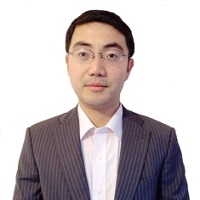 |
|
Prof. Huanhuan Chen (IEEE Fellow), University of Science and Technology of China Huanhuan Chen (IEEE Fellow), is a professor in School of Computer Science, University of Science & Technology of China (USTC), Hefei, China. He received the B.Sc. degree from USTC, Hefei, China, in 2004, and Ph.D. degree, sponsored by Dorothy Hodgkin Postgraduate Award, in computer science at the University of Birmingham, Birmingham, UK, in 2008. He worked in University of Birmingham and University of Leeds in the UK from 2008 to 2012, respectively. His PhD thesis "Diversity and Regularization in Neural Network Ensembles" has received 2011 IEEE Computational Intelligence Society Outstanding PhD Dissertation award (the only winner) and 2009 CPHC/British Computer Society Distinguished Dissertations Award (the runner up). His work “Probabilistic Classification Vector Machines” on Bayesian machine learning published in IEEE Transactions on Neural Networks, has been awarded as IEEE Transactions on Neural Networks Outstanding 2009 Paper Award (bestowed in 2012, and only one paper in 2009 receive this award). In 2015, Dr. Chen received the International Neural Network Society (INNS)Young Investigator Award in 2015 for his significant contributions in the field of Neural Networks.His research interests include computational intelligence, statistical machine learning, data fusion, neural networks, Bayesian inference and evolutionary computation, etc. |
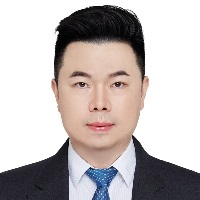 |
Prof. Xin Luo (IEEE Fellow), Southwest University, China Xin Luo (Fellow, IEEE) received the B.S. degree in computer science from the University of Electronic Science and Technology of China, Chengdu, China, in 2005, and the Ph.D. degree in computer science from the Beihang University, Beijing, China, in 2011. He is currently a Professor of Data Science and Computational Intelligence with the College of Computer and Information Science, Southwest University, Chongqing, China. He has authored or coauthored over 400 papers (including over 160 IEEE Transactions/Journal papers) in the areas of Artificial Intelligence and Data Science. Dr. Luo was the recipient of the Outstanding Associate Editor Award from IEEE Access in 2018, IEEE/CAA Journal of Automatica Sinica in 2020, and from IEEE Transactions on Neural Networks and Learning Systems in 2022-2024. He is currently serving as an Associate Editor for IEEE Transactions on Neural Networks and Learning Systems, and IEEE/CAA Journal of Automatica Sinica. His page is https://scholar.google.com/citations?user=hyGlDs4AAAAJ&hl=zh-TW. Speech Title: A Preliminary Research on High-Order Nonstandard Tensor Representation Learning Model |
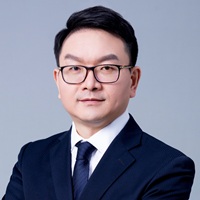 |
Prof. Yang Yang, (IEEE Fellow), the Shanghai Center, Hong Kong University of Science and Technology, China Dr. Yang Yang is a Professor with the Shanghai Center, Hong Kong University of Science and Technology, China. His research interests include multi-tier computing networks, 5G/6G systems, AIoT technologies, intelligent services and applications, and advanced wireless testbeds. He has published more than 300 papers and filed more than 120 technical patents in these research areas. Yang is a Fellow of the IEEE. Speech Title: Collaborative Edge Computing for Large AI Models on Wireless Networks Abstract: Large AI models have emerged as a crucial element in various intelligent applications at the network edge, such as voice assistants in smart homes and autonomous robotics in smart factories. Computing big AI models, e.g., for personalized fine-tuning and continual serving, poses significant challenges to edge devices due to the inherent conflict between limited computing resources and intensive workload associated with training. Despite the constraints of on-device training, traditional approaches usually resort to aggregating data and sending it to a remote cloud for centralized computation. Nevertheless, this approach is neither sustainable, which strains long-range backhaul transmission and energy-consuming datacenters, nor safely private, which shares users’ raw data with remote infrastructures. To address these challenges, we alternatively observe that prevalent edge environments usually contain a diverse collection of trusted edge devices with untapped idle resources, which can be leveraged for edge training acceleration. Motivated by this, we propose to leverage edge collaboration, a novel mechanism that orchestrates a group of trusted edge devices as a resource pool, for expedited, sustainable large AI model computing at the edge. As an initial step, we present a comprehensive framework for building collaborative edge computing systems and analyze in-depth its merits and sustainable scheduling choices following its workflow. To further investigate the impact of its parallelism design, we empirically study a case of four typical parallelisms from the perspective of energy demand with realistic testbeds. Finally, we discuss open challenges for sustainable edge collaboration to point to future directions of edge-centric large AI model computing. |
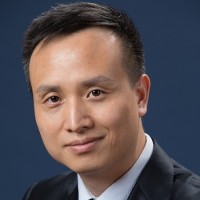 |
Prof. Shengcai Liao (IEEE Fellow), United Arab Emirates University, UAE Dr. Shengcai Liao is an Associate Professor in the Department of Computer and Network Engineering, College of Information Technology (CIT) in UAEU. He is an IEEE Fellow and IAPR Fellow. He was a Principal Scientist in IIAI, G42 in UAE during 2018-2024, and an Associate Professor in Institute of Automation, Chinese Academy of Sciences (CASIA) from 2014 to 2018. He received B.S. degree in mathematics from Sun Yat-sen University in 2005 and Ph.D. degree from CASIA in 2010. He was a Postdoc in Michigan State University during 2010-2012. He has published 100+ papers, with 22,708 citations and h-index 56. He ranks #905 among 215,114 world-wide AI scientists (Top 0.42%) in 2019 (by Stanford University). His representative work LOMO+XQDA for person re-identification has been cited 2,621 times and ranks #11 in Most Influential CVPR Papers 2015. He was awarded Best Paper/Best Student Paper in ICB 2006/2007/2015, and CCBR 2016, Best/Outstanding Reviewer in IJCB 2014, CVPR 2019/2021, Great Contribution Award for Beijing 2008 Olympic Games, Second-Class Award of the China State Science and Technology Progress Award 2019, and Winner of CVPR 2017 Detection in Crowded Scenes Challenge and ICCV 2019 NightOwls Pedestrian Detection Challenge. He served as an Assistant Editor for “Encyclopedia of Biometrics, 2nd Ed.”, Guest Associate Editor for IEEE T-BIOM, and Associate Editor for IEEE TIP and TMM. He led a successful bid of hosting IJCB 2022 in Abu Dhabi, UAE, and served as a Program Chair. He served as Area Chair for ICPR 2016, ICB 2016-2018, CVPR 2022-2025, ICCV 2023-2025, ICML 2025, NeurIPS 2023-2025, ECCV 2024, and WACV 2024-2025. Speech Title: High-Fidelity Personalized Image and Video Generation |
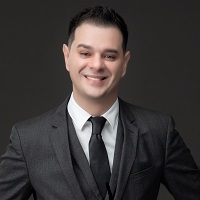 |
Prof. Nikolaos M. Freris, University of Science and Technology of China, China Nick Freris is Professor in the School of Computer Science at USTC and former Vice Dean of the InternaDonal College (2019-2024). He received the Diploma in Electrical and Computer Engineering from the NaDonal Technical University of Athens (NTUA), Greece, in 2005, and the M.S. degree in Electrical and Computer Engineering, the M.S. degree in MathemaDcs, and the Ph.D. degree in Electrical and Computer Engineering all from the University of Illinois at Urbana-Champaign (UIUC) in 2007, 2008, and 2010, respectively. Speech Title: SpiRobs: Bioinspired So/ Spiral Robots Abstract: SpiRobs morphologically replicate the spiral pa8ern that is ubiquitous in natural organisms (elephant, octopus, chameleon, etc.). They are easy and fast to build across arbitrary scale via 3D prinDng. Cable actuaDon allows for fast and life-like movements. Besides, a single robot can handle a wide variety of objects (in terms of size, shape, and weight). A key to this is a bioinspired grasping strategy from the octopus. Finally, I will also demonstrate a wide range of prototypes, including a miniaturized gripper, a manipulator mounted on a drone, and mulD-robot arrays that can grasp in a tendril-like fashion. A video descripDon is available at: h8ps://www.bilibili.com/video/BV1CDCVYtEoW. |
